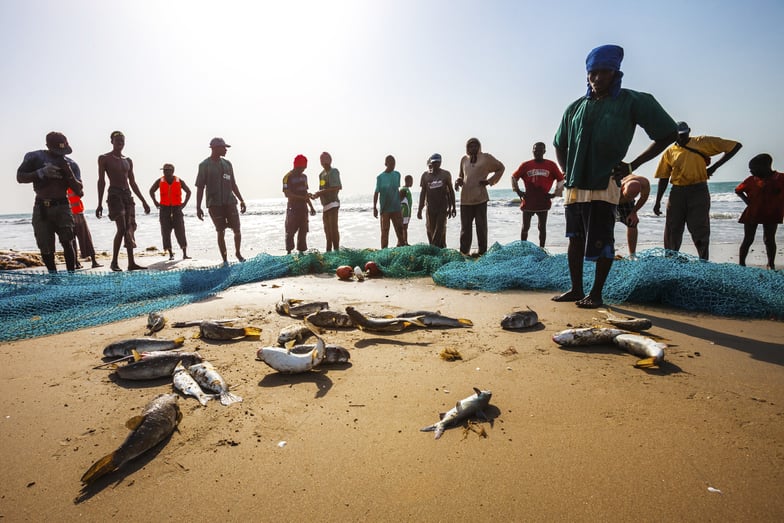
Environmental Sustainability Trends in the Food Industry 2019
|
Corporate responsibility
|
Sustainability
|
Food industry
Posted By:
Trace One
As the global population continues to grow in a world with limited resources, the pressure is mounting on producers and manufacturers to maximize the amount of food that can be grown on existing land. This in turn, is having a catastrophic impact on the environment. What’s more, with recent research [1] indicating that the food supply is responsible for about 20-30 percent of total greenhouse gas emissions, there is undoubtedly a significant challenge ahead for the food industry when it comes to achieving environmental sustainability.
Whilst several changes have been implemented to help try and resolve this global issue, retailers still have much more that they need to do in order to drive change towards a more sustainable food system.
See below for some key consumer trends and examples of ways in which brands and retailers are maximizing their green credentials.
Shop local
Due to the now global nature of food, consumers are presented with more choice than ever before. Whilst this means that diets are incredibly diverse, the transportation of food from faraway places has generated both a physical and psychological distance between the consumer and the farmer. This has consequently triggered a sense of doubt in the mind of the consumer about the authenticity and source of their food. With the long and complex supply chains across Europe, the average consumer is unaware of the exact provenance of their food.
As a result, the demand for local or regional produce has become more pronounced than ever before. In fact, according to the Natural Marketing Institute [2], 71% of French and 47% of Spanish and British consumers claim that it is important to buy local products. This was further evidenced in a Mintel report [3], which indicated that many European countries are more likely to trust a manufacturer that produces food locally.
In response to this growing consumer demand for more locally sourced food, retailers are increasingly opting to use small-scale sustainable farms as opposed to large industrial businesses, thus prioritizing consumers’ needs and the planet’s welfare. UK supermarket chain Co-op for example, has implemented a ‘Backing British’ initiative which involved doubling the number of smaller, local producers that supply to its stores.[4] Co-op retail chief executive, Steve Murrells stated “We know our customers care about the provenance of their food and are keen to champion British products wherever they can.” Similarly, at the end of 2017, international supermarket giant, Tesco, signed up to the National Farmer’s Union fruit and veg pledge, which advocates the fair treatment of local suppliers, whilst minimizing food wastage and buying seasonal produce. IGD Senior trend analyst Toby Pickard predicts that offering products produced locally and supporting small sized producers will be “positively perceived by shoppers, as it helps them sustain their community and allows them to feel special, to be part of something unique.”
The ‘shop-local’ movement should also encourage retailers to provide information about their products provenance (Private Label included!). [5] Clearly displaying this through all packaging and marketing collateral is a key way to secure and maintain long-term customer loyalty.
The ‘plastic free’ movement
It’s no secret that social media platforms and news channels have become inundated with heart breaking footage and information regarding the catastrophic impact that plastic waste is having on the environment. In fact, according to the World Economic Forum [6], an estimated 32% of all plastic packaging produced leaks out into the Earth’s ecosystems, which is consequently destroying natural habitats across the globe.
With this constant stream of shocking news headlines alongside the broadcast of hard-hitting documentaries such as Blue Planet, consumers are more eager than ever to reduce the amount of wasted plastic.
In a bid to tackle this global issue, retailers are taking action by establishing ways to significantly reduce the amount of plastic used, thus simultaneously meeting the needs of the consumer and the environment.
Dutch supermarket chain Ekoplaza, for example, has recently announced the launch of Europe’s first ever plastic-free supermarket aisle in what campaigners deem a turning point in the war on plastic pollution. The aisle will stock more than 700 plastic-free products in this particular branch, with the intention of rolling it out to the rest of their stores in the near future.
British frozen food retailer Iceland has also recently announced that by 2023, its Private Label range will be entirely plastic free! As an alternative to plastic, the retailer has made a commitment to use paper and pulp trays and fully recyclable paper bags.
Supermarket chain Waitrose has similar intentions, having already removed 65% of black plastic from its fruit and vegetable packaging and they have recently pledged to not sell any Private Label food in black plastic beyond 2019.
Essentially, in order to maintain the trust of the consumer, it is vital for brands and retailers to consider their green credentials. Putting measures in place such as reducing the number of miles food is travelling and decreasing the amount of packaging used, are both key examples of ways in which brands can be more environmentally sustainable. It is without a doubt that those who fail to comply, will fall behind.
[1]https://www.foodmanufacturing.com/article/2010/08/principles-sustainability-food-products
[2]https://www.foeeurope.org/sites/default/files/agriculture/2015/eating_from_the_farm.pdf
[3]http://www.mintel.com/global-food-and-drink-trends/
[4]https://blog.coop.co.uk/2016/11/17/we-are-doubling-the-number-of-our-local-food-suppliers/
[5]http://www.mintel.com/global-food-and-drink-trends/
[6]https://www.weforum.org/reports/the-new-plastics-economy-rethinking-the-future-of-plastics